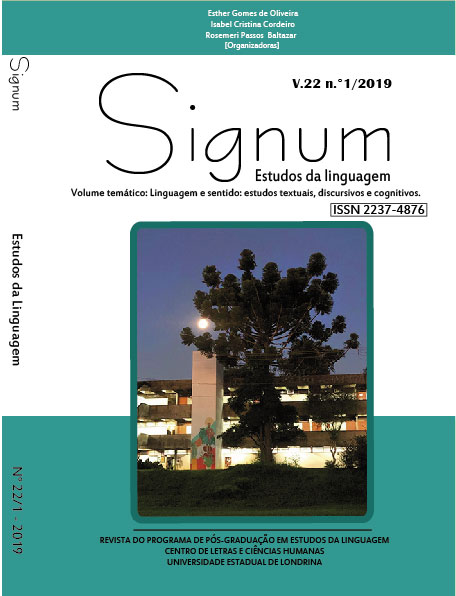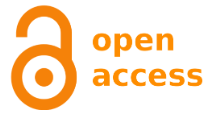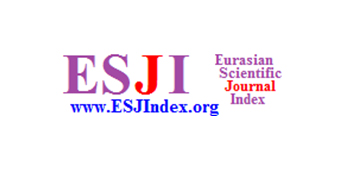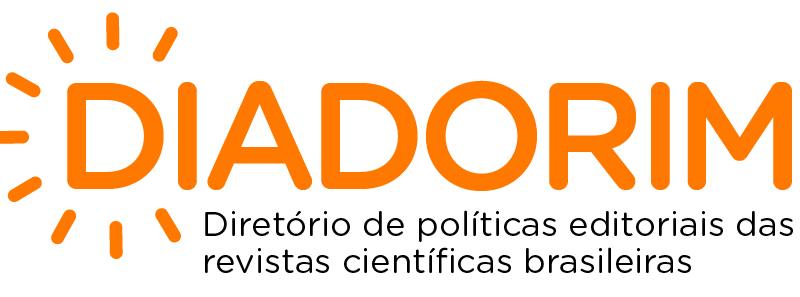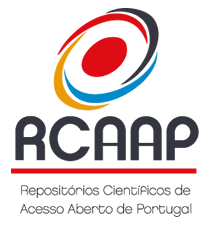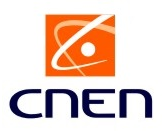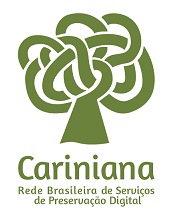Reading Comprehension in Problems Solving in Mathematics Test of Prova Brasil
DOI:
https://doi.org/10.5433/2237-4876.2019v22n1p88Keywords:
, Compreensão leitora, Resolução de Problemas, Prova Brasil.Abstract
Difficulty in reading comprehension and problem solving presented in the results of large- scale assessment may be in basic cognitive processes of reading. Researches suggest the relation between reading comprehension skills and mathematical problem solving. The aim of this article is to present the articulation between reading and problem solving, considering the cognitive dimension, and to accentuate the importance of automaticity and reading comprehension for solving problems in the Mathematics test of Prova Brasil. We analysed the descriptors of three topics of the reference matrix of Portuguese Language that indicate the reading abilities in items of Prova Brasil of a standardized test, elaborated in order to emphasize the need for the student to have developed the processes of reading comprehension to be successful in solving mathematical problems.Downloads
References
BIVAR, A.; SANTOS, C.; AIRES, L. M. Problemas e exercícios no ensino básico e secundário de Matemática. In: FAYOL, M.; TOOM, A; BIVAR, A.; SANTOS, C.; AIRES, LM. Fazer contas ajuda a pensar. Lisboa: Fundação Francisco Manuel dos Santos, 2010. p. 95-160.
CORREIA, Deolinda Varela Marques. Estudos experimentais sobre leitura e compreensão de problemas verbais de matemática. Tese (Doutorado em Letras) - Universidade de Lisboa, Faculdade de Letras, Lisboa, 2013.
DEHAENE, Stanislas. Os neurônios da leitura. Porto Alegre: Penso, 2012.
ECHEVERRÍA, M. D. P. P. A solução de problemas em matemática. A solução de problemas: aprender a resolver, resolver para aprender. Porto Alegre: Artes Médicas, p. 43-66, 1998.
ECHEVERRÍA, Maria del Puy Pérez; POZO, Juan I. Aprender a resolver problemas e resolver problemas para aprender. A solução de problemas. Porto Alegre: Artes Médicas, p. 1-12, 1998.
FUCHS, Lynn S. et al. Is word-problem solving a form of text comprehension? Scientific Studies of Reading, v. 19, n. 3, p. 204-223, 2015.
KINTSCH, Walter; RAWSON, Katherine. Compreensão. In: SNOWLING, Margaret J.; HULME, Charles (Org.). A ciência da leitura. Porto Alegre: Penso Editora, 2013. p. 227-244.
KOCH, Ingedore G. Villaça; TRAVAGLIA, Luiz Carlos. A coerência textual. São Paulo: Contexto. 1989.
LABERGE, David; SAMUELS, S. Jay. Toward a theory of automatic information processing in reading. Cognitive psychology, v. 6, n. 2, p. 293-323, 1974.
LORENSATTI, Edi Jussara Candido. Linguagem matemática e Língua Portuguesa: diálogo necessário na resolução de problemas matemáticos. CONJECTURA: filosofia e educação, v. 14, n. 2, 2009.
MACHADO, Alessandra Pereira Gomes; FREITAG, Raquel Meister Ko. Processamento da decodificação e da compreensão da leitura: consciência linguística e memória. Letras de Hoje, v. 54, n. 1, p, 2019.
MACHADO, Alessandra Pereira Gomes. Fluência em leitura oral e compreensão em leitura: automaticidade na decodificação para a compreensão leitora. 2018, 206 f. Tese (Doutorado em Educação) - Universidade Federal de Sergipe, São Cristóvão, 2018.
MAYER, Richard E. A Capacidade para a matemática. In: STERNBERG, R. (Org.). As capacidades intelectuais humanas: uma abordagem em processamento de informações. Porto Alegre: Artes Médicas, 1992. p. 144-168.
OAKHILL, Jane; HARTT, Joanne; SAMOLS, Deborah. Levels of comprehension monitoring and working memory in good and poor comprehenders. Reading and writing, v. 18, n. 7-9, p. 657-686, 2005.
ONUCHIC, Lourdes de la Rosa. Ensino-aprendizagem de Matemática através da resolução de problemas. Pesquisa em Educação Matemática. São Paulo: Editora UNESP, p. 199-220, 1999.
ONUCHIC, Lourdes de La Rosa. Palestras de Encerramento do I SERP: Uma história da resolução de problemas no Brasil e Mundo. In: I Seminário em resolução de problemas (I SERP): múltiplos olhares sobre a resolução de problemas convergidos para a aprendizagem. Rio Claro-SP: UNESP, p.1-15, 2008.
ONUCHIC, Lourdes de la Rosa; ALLEVATO, Norma Suely Gomes. Novas reflexões sobre o ensino-aprendizagem de matemática através da resolução de problemas. Educação matemática: pesquisa em movimento. São Paulo: Cortez, p. 212-231, 2005.
PERFETTI, Charles A.; LANDI, Nicole; OAKHILL, Jane. A aquisição da habilidade de compreensão da leitura. In: SNOWLING, Margaret J.; HULME, Charles (Org.). A ciência da leitura. Porto Alegre: Penso Editora, 2013. p. 245-265.
PERFETTI, Charles; STAFURA, Joseph. Word knowledge in a theory of reading comprehension. Scientific Studies of Reading, v. 18, n. 1, p. 22-37, 2014.
PÓLYA, George. A arte de resolver problemas: Um novo aspecto do método matemático. Rio de Janeiro: Interciência, 2006.
PONTE, João Pedro da; QUARESMA, Marisa. O papel do contexto nas tarefas matemáticas. Interacções, v. 8, n. 22, 2012.
PORTO, Maria Augusta Rocha; FREITAG, Raquel Meister Ko; TEJADA, Julian. Silent reading time and reading aloud with young, older adults and elderly people. Letras de Hoje, v. 53, n. 1, p. 100-108, 2018.
SANTOS, C.; AIRES, LM. Fazer contas ajuda a pensar. Lisboa: Fundação Francisco Manuel dos Santos, 2010. p. 43-94.
SANTOS, Maria da Conceição Bastos Henriques dos. Competências em língua portuguesa e dificuldades de processamento em matemática. Dissertação (Mestrado em Letras) - Universidade de Coimbra, Faculdade de Letras. Coimbra, Portugal, 2009.
SCHOENFELD, Alan H. Expert and Novice Mathematical Problem Solving. Final Project Report and Appendices BH. 1982.
SCHROEDER, Thomas L.; LESTER, Frank K. Developing understanding in mathematics via problem solving. New directions for elementary school mathematics, p. 31-42, 1989.
SMITH, Frank. Understanding reading: A psycholinguistic analysis of reading and learning to read. Routledge, 2004.
SMOLE, Kátia Stocco; DINIZ, Maria Ignêz (org). Ler, Escrever e Resolver Problemas: habilidades básicas para aprender matemática. Porto Alegre-RS: Artmed, 2001.
Published
How to Cite
Issue
Section
License
Copyright (c) 2019 Signum: Estudos da Linguagem

This work is licensed under a Creative Commons Attribution-NonCommercial-NoDerivatives 4.0 International License.
This journal reserves the right to make, in the originals, normative, orthographic and grammatical modifications in order to maintain the standard language and the credibility of the publication. It will respect, however, the authors' style of writing. Modifications, corrections and suggestions of conceptual order will be forwarded to the authors, if necessary. In these cases, the papers, once appropriate, should be submitted to a new appreciation. The final examinations will not be forwarded to the authors. Works published become property of Signum, being its total or partial reprint subject to an explicit authorization of the journal. In all subsequent quotes the original source of publication should be mentioned, in case, in Photographic Discourse. Opinions emitted by the authors are their exclusive responsibility.